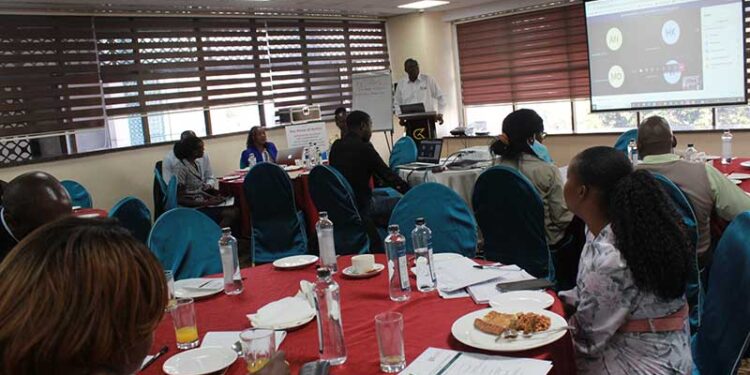Shippers Council of East Africa (SCEA) has partnered with Alliances for Trade Facilitation GIZ to undertake an analytical study on the implementation of the Authorized Economic Operators (AEO) and Pre–Arrival Processing programs in Kenya. The validation workshop for the draft analytical report was done this week in Nairobi.
This study aims to conduct a situation analysis of these two programs and recommend measures to optimize utilization for the benefit of both shippers and the government, SCEA tweeted.
In another study, the Federation of East African Freight Forwarders Associations (FEAFFA) and the Commonwealth Secretariat did in 2021 decried the low uptake of the AEOs in the East African region, especially by Small and Medium Enterprises (SMEs).
The AEO scheme builds trust between customs administrators and traders through compliance. It also enhances the safety and security of traded goods among consumers from different geographical locations according to Mr. Lawrence Othieno, Commonwealth Secretariat (COMSEC) Adviser, Trade Competitiveness said.
The Customs administrations of East Africa Community (EAC) Partner States have been implementing the AEO program for over 10 years, yet the uptake has remained too low to positively impact trade. By last year, only 142 firms had been regionally accredited in the EAC region.
FEAFFA study attributed the low uptake of the AEO scheme by SMEs to the low level of awareness, the complexity of the program, and the insufficient capacity of most businesses to meet the AEO requirements. The study recommended a continued awareness campaign, a move confirmed by the EAC Commissioners of Customs.

In 2005, the World Customs Organization (WCO) Council adopted the SAFE Framework of Standards to secure and facilitate global trade. This was informed by the need to secure the international supply chain and enhance trade facilitation.
The AEO program was among the protocols that were borne out of this decision, and, as a result, the EAC revenue administrations, through their respective Commissioners for Customs, conceived the regional AEO program in 2006.
Recently, the WTO Trade Facilitation Agreement reinforced the importance of AEO as a tool for facilitating trade and enhancing supply chain security. Authorized operators have trusted traders who are allowed to trade with minimal customs controls. They go through a rigorous vetting process by Customs before being accredited as AEOs.
The AEO program offers many benefits that most industry players are not aware of. The scheme significantly reduces the physical and document-based controls, offers priority treatment customs, and guarantees easy access to customs by businesses.
The Kenya Revenue Authority (KRA) rolled out a Pre-arrival Cargo Clearance System aimed at speeding up the movement of cargo from the port of Mombasa to its intended destinations in 2016.
KRA described the move as a very important step in the authority’s quest to make Mombasa port more “attractive” and reduce the cost of doing business for investors.
This article was published by the editorial team at FEAFFA. For any enquiries, contact us via Email: freightlogistics@feaffa.com Tel: +254733780240





